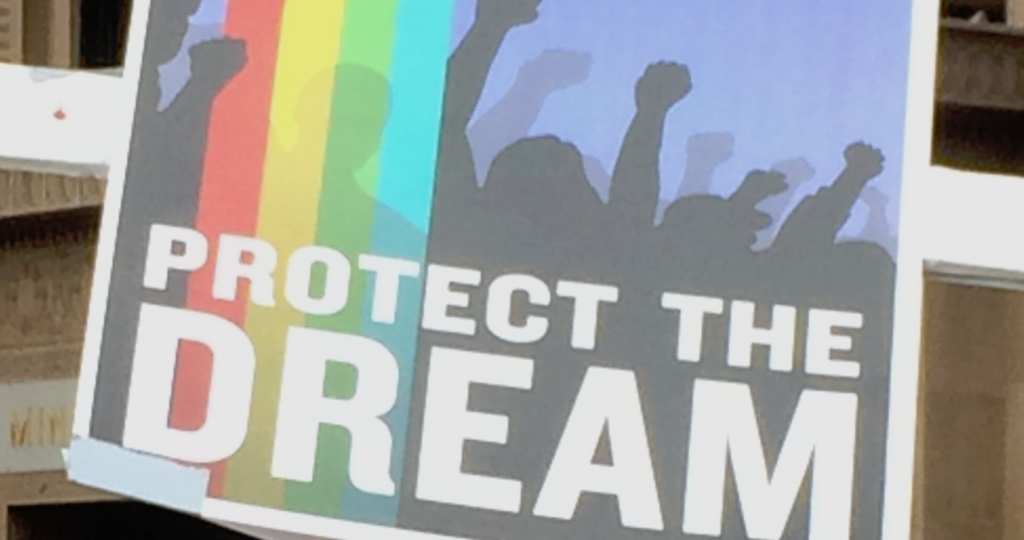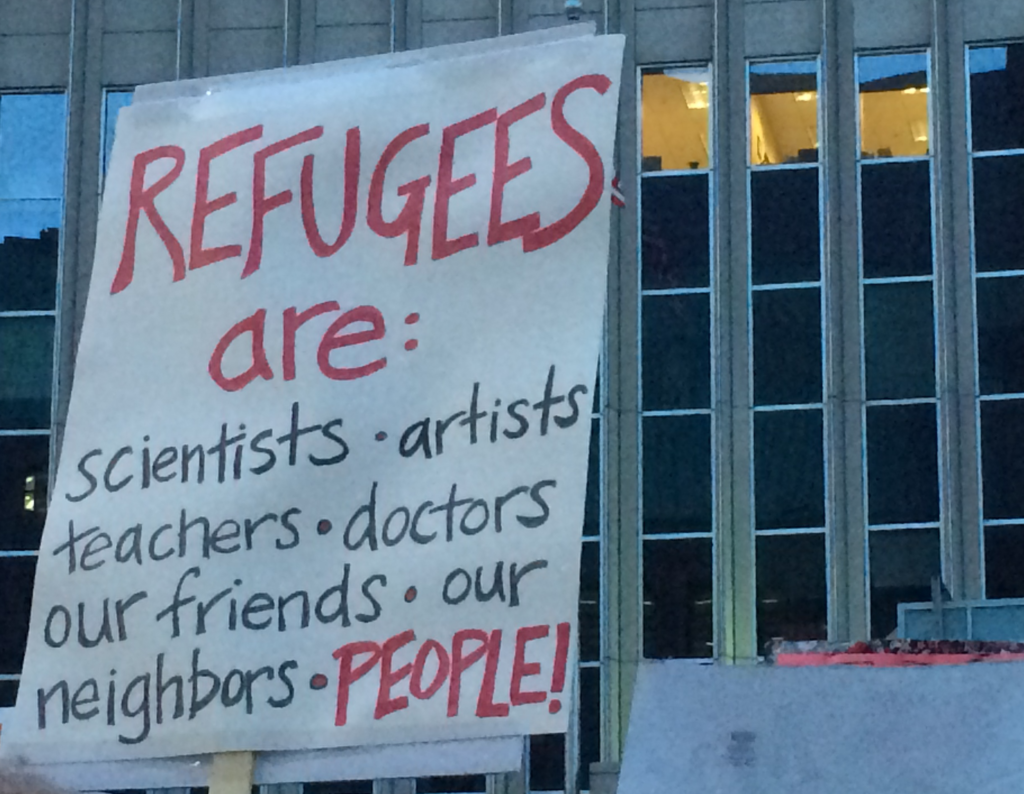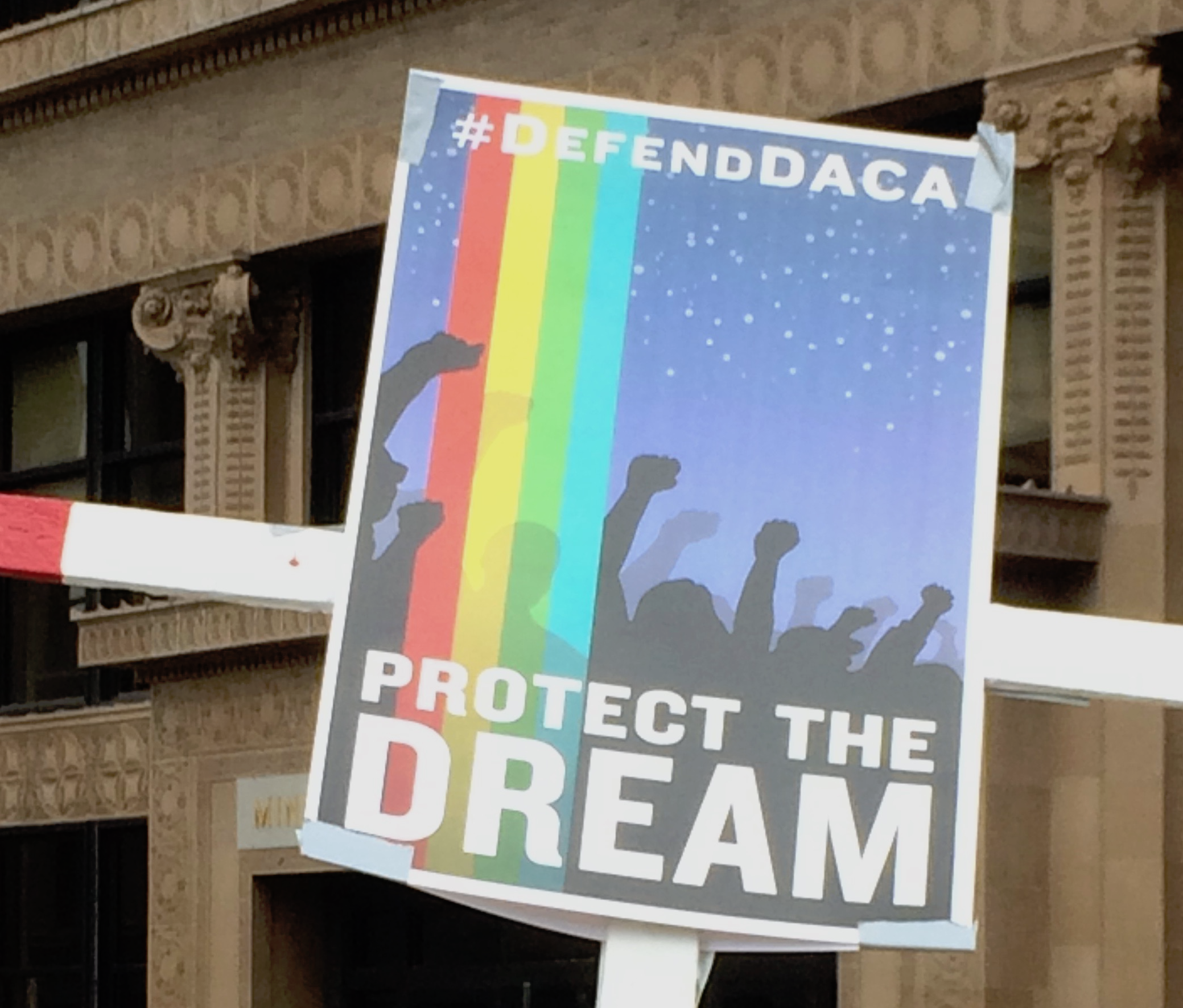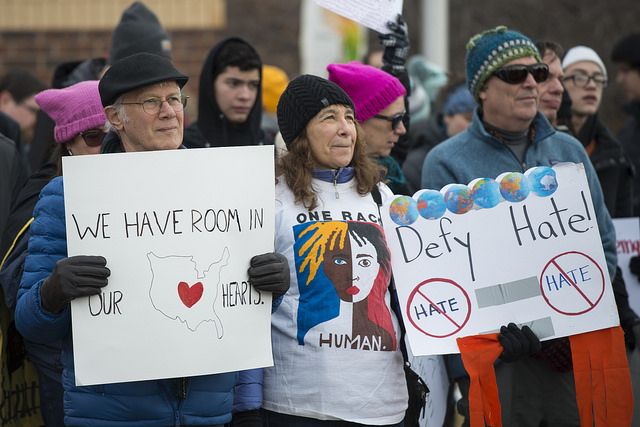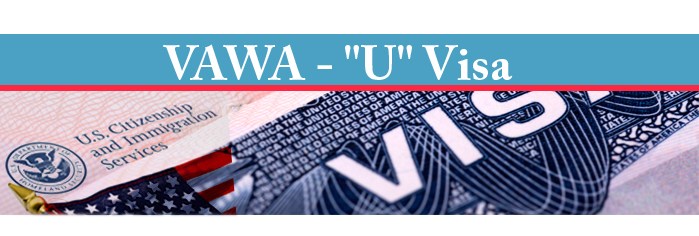
Trafficked, abused, living in fear—and then Camila’s* life got worse. By the time she met the Immigrant Law Center of Minnesota through Susan Jorgensen Flores, Camila was sitting in jail, separated from her children, and in danger of deportation.
Camila was born in Tamaulipas, Mexico, and raised by her grandmother until she was 16 years old. Then her grandmother sold her to a 29-year-old man for $2,000. He was physically and emotionally abusive from the start. They never legally married. When Camila became pregnant, he left for the United States. He left her behind with his aunt, who also abused her.
Before the baby was born, Camila escaped from the aunt and came to the United States. She rejoined her abusive partner in North Carolina. and their son was born in September 2006. A daughter was born in 2008.
The abuse continued. When she became pregnant with a third child, her partner demanded that she have an abortion, and she refused. He said he would leave, and she was happy to see him go.
By the time her second daughter was born, Camila was 21 and living in Tampa, Florida. The father of the children eventually visited them there. He was not very interested in the daughters, but took their son away and would not return him. Camila has not seen her son since then, and as far as she knows he is with his father in Mexico.
After some time, she became romantically involved with José, a construction worker. He traveled to different states for months at a time, leaving her and her daughters in Florida. When she became pregnant with his son, he became abusive and extremely jealous, and then insisted that she and the children travel with him. He was a heavy drinker, who also got involved in drugs, and remained physically and emotionally abusive throughout their relationship.
Camila and José and the children lived in Minnesota for some time, and José paid the rent, but nothing else. He also forbade Camila from working. She kept the family going with food from a food shelf and the help of a friend, Rosita*, who would often feed the children and Camila.
Desperate for a way to pay monthly expenses, Camila eventually applied for assistance for her U.S. citizen children. She did not list José as a household member and did not list his income, as he went for weeks without coming home and did not provide any money to her.
In 2014, she was charged with wrongful receipt of assistance, because José did pay the rent and sometimes stayed in the home. José hired a private attorney who got Camila into diversion, but with a guilty plea sitting in the prosecutors file that would be submitted to court if she violated any of the terms of her diversion. One of the terms of this agreement was that she must not leave the state of Minnesota.
A few months later, Camila was taken to the hospital as a result of physical abuse by José. He was charged and ultimately convicted of domestic assault.
That made Camila eligible for a U visa, a special visa reserved for undocumented immigrants who are crime victims, but who step up and cooperate with police and the criminal justice system. The county has to certify that a crime victim qualifies for a U visa. Unfortunately, even after this certification, the victim faces a very long wait. There’s a cap of 10,000 U visas per year, and there are more than 200,000 applications pending.
José was enraged by her having called the police and when he got out of jail, he took Camila and the children to Kansas, where he continued to be abusive, both emotionally and physically.
In 2016, Jose learned that there was a warrant for Camila’s arrest in Minnesota, because she violated the terms of the diversion agreement when she left the state. The abuse worsened at that point with him constantly threatening to turn her into the police, get her deported, and take her children away.
She eventually tired of the threats and abuse and in August 2017 she signed a Delegation of Parental Authority (DOPA) form, giving custody of her three minor children to her friend Rosita, who still lived in Minnesota.
Then Camila turned herself in to the police in Kansas. She was transported to Minnesota and ICE picked her up shortly thereafter. Under the terms of the diversion agreement, a guilty plea was immediately entered, and ICE picked her up.
The guilty plea was considered an aggravated felony by the immigration judge, who denied her bond and kept her in jail. Her two daughters were brought to Minnesota to live with Rosita, though José refused to release his son, who continues to live with him in Kansas to this day.
ILCM’s Susan Jorgensen Flores got involved when sentencing was still pending with the Public Defender’s office. Susan heads up ILCM’s assistance to public defenders across the state. After much work and excellent cooperation between the public defender, the county, and the judge, the guilty plea was withdrawn, on the basis of an underlying substantive defect in the charge. Then the criminal case was dismissed—be gone aggravated felony!
On December 20, 2017, five days before Christmas, at a new hearing, the immigration judge set bond at $1500. No one had the funds to pay the bond. Camila’s friend Rosita has four children of her own and had been supporting Camila’s daughters for nearly four months by that point. She did not have anything extra to spare.
Camila had no family in the United States other than her minor children, and had no friends other than Rosita, due to the isolation imposed on her by her abusers over the years. She did have an advocate from CADA of Watonwan County and she did have a signed U certificate from Watonwan County. No one had money for a bond.
ILCM went looking for money to pay the bond. On December 22, the Freedom Fund organization paid the bond and Camila was reunited with her daughters for Christmas!
*We have changed some names in this story. As a matter of policy, we usually change the names of immigrants when telling their stories. While the stories are real, and while the individuals have agreed to let us use their stories, we choose to protect their privacy by not using their real names.







